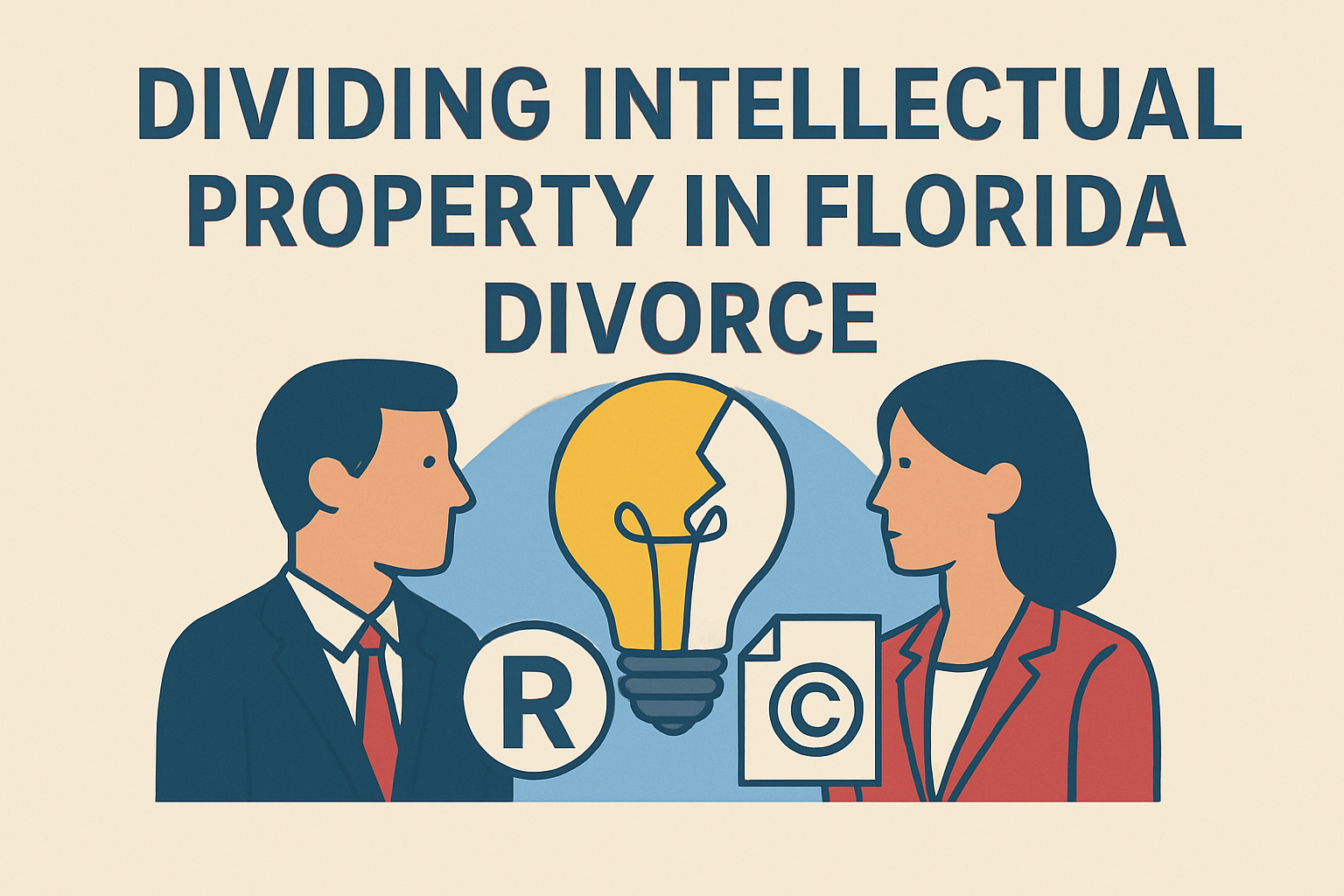Intellectual Property in Florida Divorce
If you’re a professional in Florida facing divorce, you might be wondering about the status of your intellectual property—things like patents, copyrights, or trademarks—when it comes to dividing assets. You’ve worked hard to build these creations, and it’s natural to want to protect them.
Understanding Marital vs. Non-Marital Assets
In Florida, assets and debts are generally divided into two categories: marital and non-marital. Marital assets are typically those acquired during the marriage, regardless of whose name is on the title. In essence, non-marital assets are those you owned before the marriage or received individually as a gift or inheritance.
So where does intellectual property fit in? If you created the intellectual property during your marriage, it’s likely to be considered a marital asset. If it was something you created beforehand, it might remain non-marital. But as with most things in family law, it can get more complicated.











